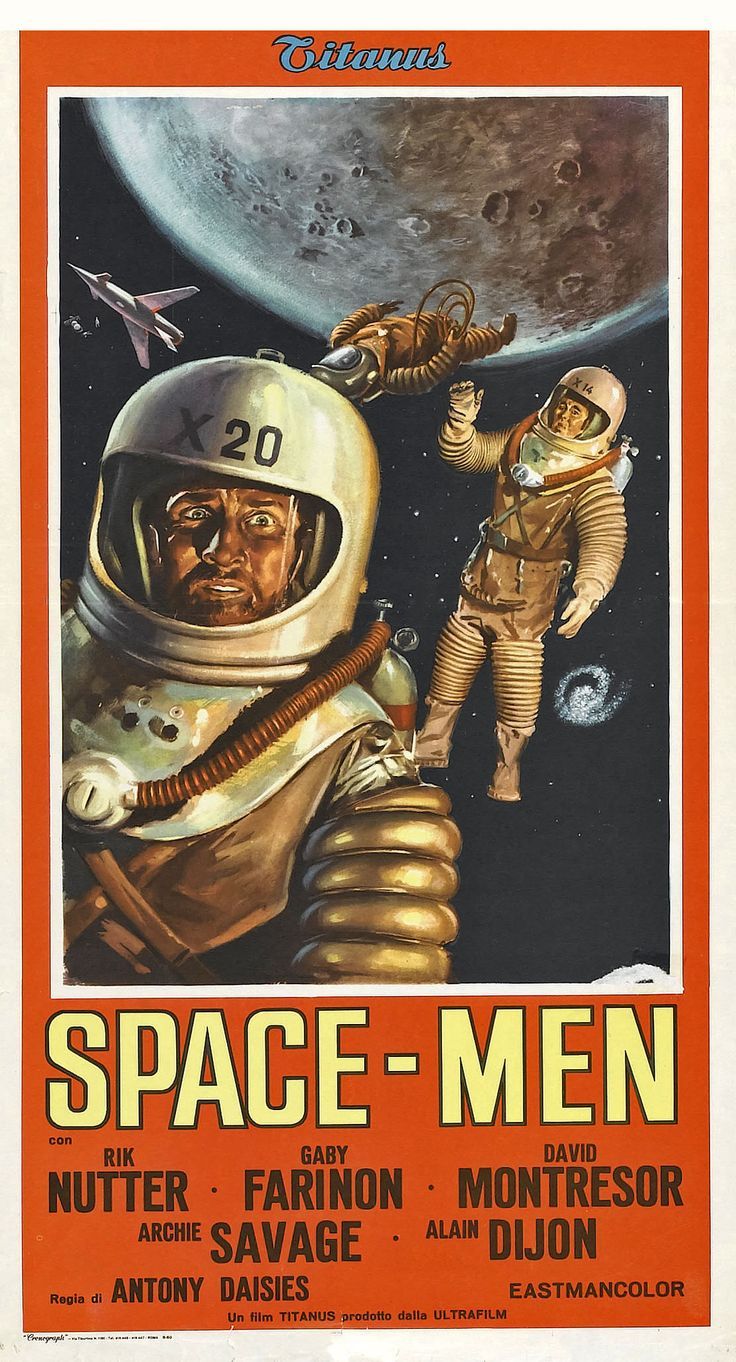The film that gave birth to Italian science fiction
A delightful cinematic keepsake that still works today
Before the release of Space Men, Italian science fiction wasn’t just an rare phenomenon, it was an non-existent one. The respectable box office success achieved by Margheriti’s film led to a subsequent national blooming of the genre, albeit it with a relatively limited number of releases. Set entirely in space, and convincingly so considering the limited means available (“Not one scene in this film is set on the plant known as Earth”, reassured its advertising campaign), Space Men renounces alien life forms and concentrates on the discord between the human brain and the electronic brain (without wishing to blaspheme, does it remind you a bit of Kubrick’s 2001?). The film is strengthened by the awareness that man, as well as a brain, also has a heart. This, in addition to Margheriti’s directorial style that is heavily influenced by the western, exquisitely crafted models and astral emptiness shot in black and white (At the time the director queried: “Are there any colours in space?”), makes Space Men not just a delightful cinematic keepsake, but also a film that still hits the right notes today.
Activity on board a space station is interrupted by alarming news. The Alpha 2 spaceship no longer has any crew, and is at the mercy of an out-of-control computer that has set the ship on a collision course with Earth. A heroic mission is urgently required.
The film that gave birth to Italian science fiction
A delightful cinematic keepsake that still works today
Before the release of Space Men, Italian science fiction wasn’t just an rare phenomenon, it was an non-existent one. The respectable box office success achieved by Margheriti’s film led to a subsequent national blooming of the genre, albeit it with a relatively limited number of releases. Set entirely in space, and convincingly so considering the limited means available (“Not one scene in this film is set on the plant known as Earth”, reassured its advertising campaign), Space Men renounces alien life forms and concentrates on the discord between the human brain and the electronic brain (without wishing to blaspheme, does it remind you a bit of Kubrick’s 2001?). The film is strengthened by the awareness that man, as well as a brain, also has a heart. This, in addition to Margheriti’s directorial style that is heavily influenced by the western, exquisitely crafted models and astral emptiness shot in black and white (At the time the director queried: “Are there any colours in space?”), makes Space Men not just a delightful cinematic keepsake, but also a film that still hits the right notes today.
Activity on board a space station is interrupted by alarming news. The Alpha 2 spaceship no longer has any crew, and is at the mercy of an out-of-control computer that has set the ship on a collision course with Earth. A heroic mission is urgently required.
